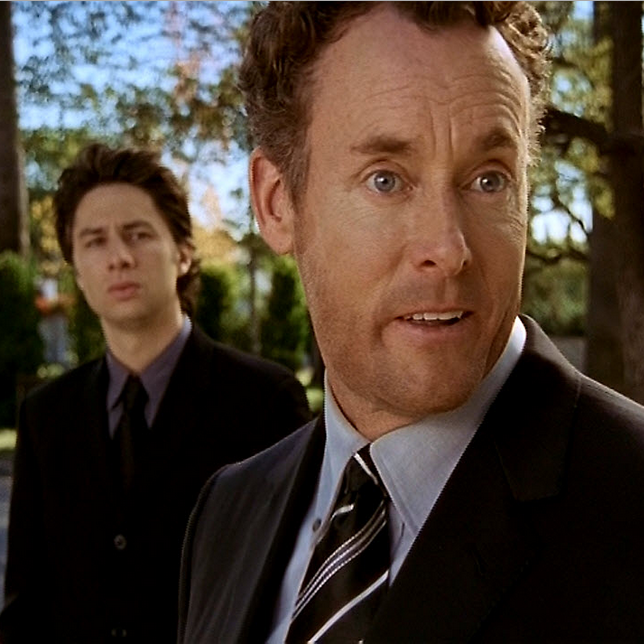You all do realize that suburbs existed before the invention of the car right? American infrastructure is bad but it’s not irredeemable, the assumption that we can’t provide public transportation to these places because of a lack of resources is malthusian. And sure some places like the American Southwest and Florida are legitimately over human population carrying capacity due to climate change but in general the earth as a whole isn’t, and cities like Amsterdam are just as unsustainable as Miami since even though has one of those le epic reddit notjustbikes cityskylines approved infrastructure, both are below the sea level.
I think in general our message should be abolish the need to own the automobile, any measures meant to limit car use should target the rich before the poor. And that trains are good, and that a high speed train across the United States would be a rather popular project in the eyes of even the chuds. And by god stop calling for the suburbs to be razed, stop trying to be zoomer Robert Moses.
yes bro, thinking that suburban sprawl is bad is totally malthusian.
We hate modern american suburbs because they're antithetical to sensible public transportation and walkability. It would be ridiculous to specify every single time that we particularly mean the late 20th-21st century anti-grid subdivision layout method designed to be deliberately unwalkable, dependent on personal cars, and as prohibitive to public transit as possible for the explicit purpose of discouraging municipalities from implementing public transit into that area as a method of discriminating against the urban poor and minorities.
Show
Check out these two different options for a suburb layout with identical lot size for the house plots. There is a huge difference between a sprawling suburb with awful layouts and one that's sensibly designed. The winding goofy-ass layouts that modern suburbs take are inspired by Levittown's design, but taken several steps further. That town was designed to be segregated, and the design was laid out specifically to prevent future city planners and governments from coming along and desegregating the town, using its layout as a method to make it inconvenient to connect to public transit, in order to prevent minorities from accessing the neighbourhood that way. These areas are specifically designed to be prohibitive for a municipality to connect with an effective public transit system. No sensible municipality is going to add random stops in your 50 total mile maze full of dead ends without turnarounds in order to service the maybe a dozen total users per day. No bus passenger is going to walk 5 miles through that maze to get to your house, and you don't need the bus because you have a car. It's a method of segregating your neighbourhood based on car ownership as an extrapolation of income level, as an extrapolation of race.
We don't want to literally nuke the concept of a suburb out of existence and leave everyone there for dead, we want our neighbourhoods to be designed sensibly, instead of putting ourselves in a situation where your house is a two hour walk or a 15 minute drive away from your next-door neighbour.
Show
That's going to mean we need to actively change the designs of our suburbs and neighbourhoods, and that means the modern conception of an american suburb has to go. It's not sensible to add potentially multiple miles of travel per single family residence to all of your transit routes, and it's not about a lack of resources. Can you imagine a utopian, connected city where buses and trams are so bogged down by bad layouts that walking in a straight line across people's lawns ends up being faster? Of course not.
We don't want to literally nuke the concept of a suburb out of existence

Streetcar Suburbs are an entirely sensible and sustainable format for lower-family-count living spaces. You can have other names for residential-dominated communities, but lots of people don't want to live in house that's directly between high street stores or industrial factories. It's also not sensible to put every single person in a 50-story apartment building downtown, or you're just going to make a Skyscraper Suburb that's an insane heat island. You need to stagger your density levels, and intersperse green space to build a sensible city, or else you'll just be fighting the city's microclimate harder than you can counter with HVAC and insulation, and you'll have demand spikes for your transit services that are impossible to overcome. There are actually limits to how dense you can build a high density city sustainably. Obviously that doesn't mean we need a bunch of single-family mcmansions and sprawl, but we also can't build sci-fi megacities.
Streetcar Suburbs are an entirely sensible and sustainable format for lower-family-count living spaces.
Does every family need one home? I disagree. This leads to concepts like cluster flats.
High density low rise is a concept for a potential sustainable solution.
Since you are likely from the US your attack against high rise cities is just though. Urban heat island effects are real.
Low rise options like cluster flats are generally what I'd consider medium family count housing options, certainly smaller than high-rises.
Other options like row houses or townhomes are a good low family count housing option as well. I don't think most people need individual houses, and lots of the older Streetcar Suburbs and similar in the US and here in Canada are generally based around small apartment buildings and rowhouses.
I used to live in Toronto, which definitely has heat island problems. Crappy in summer and not as helpful in winter as one might hope. But it's even more of a concern in the US, where things are getting really hot as well.
Cluster flats are also more pro-social. I've always been much happier sharing a kitchen with my neighbors because it usually turns into shared meals and a lot of community in a way you don't get in apartments.
We used to have that system back in the 40's where I lived and from what I've heard it was fantastic. Then the tire company came in and fucked everything up.
You did a malthusianism. You did a degrowth. You did an ecofascism. You did a liberalism.
There is a fundamental misunderstanding here about what a suburb is. The traditional suburb is simply a less dense extension of a city outside of the city center. Paris has suburbs which are connected by regional rail - this is perfectly good. When people hate on suburbs, they are usually Americans talking about something qualitatively different - inefficient urban sprawl that requires a car to get anywhere. Sometimes people talk about suburbs when they mean exurbs, which are like if you took a town and spread it out so much everyone needed a car.
Cities and suburbs need to be rebuilt for the human (they were razed for the car already). Exurbs however need to be returned to nature and/or transformed into proper cities or rural towns.
Agreed.
Long Island is the most easily fixable suburbs for this very reason, they have the Long Island Rail Road so some infrastructure is still in place already. I hope the suburbs there get more densified for not just farmer's sake, but for the underrated beautiful countryside there to be more abundant to enjoy.
South Florida and Phoenix immediately come to mind when I think of really terrible suburban design. Not a whole lot of high density zoning, just a massive sprawl of developments with only one or two exits to main roads so it takes like 45 minutes to walk a few hundred feet as the crow flies. Limited or no sidewalks, no effective mass transit, mixed-use zoning nonexistent. Population density is a great indicator as to how poorly designed a big city is.
Phoenix: 1.64M pop, 518 square miles Philadelphia: 1.57M pop, 134 square miles
Pretty easy to guess which one of these is easier to survive in without a car.
I just think there should be a much quicker transition between urban and rural. Endless sprawl is unsustainable and development can't keep converting farmland to housing forever. A dense city surrounded by a mix of farms and natural spaces without sprawling suburbs makes a lot of sense from an ecological standpoint.
Does any part of your plan involve forced relocation of people living in the suburbs?
Have you ever seen a single person seriously advocate for that?
It's worth noting that the current system does involve tons of forced relocation. Just because that relocation is often economic or based on the random whims of developers or the construction of even dumber stroads doesn't mean it isn't extremely prevalent. The US' national highway system destroyed half a million homes and displaced well over a million people.
There are a number of things you can do to cut sprawl in a matter of years to decades. Surely many people will willingly relocate to a more sensible and pleasant neighbourhood, but naturally some people will be stubborn and want to remain. We have plenty of options for how to handle entire neighbourhoods and towns of people who would want to remain in place. Redoing layouts of streets, banning the sale or building of new suburban homes, banning suburb rebuilds, mandating housing formats for new constructions, retiring and rewilding/reusing areas, and densifying spaces are a few examples I will quickly explain which will require minimal or no forced relocation:
-
Lots of suburban streets are ridiculously twisty and houses often have significant road setback distances. By reorganizing your roads into more sensible layouts and cutting into those setbacks with the right-of-way easements, you can de-spaghettify many areas. If people are willing to sell or move, you can even run roads through existing houses' locations to reconnect cul-de-sacs and other dead ends.
-
You can prevent new construction of mcmansion subdivisions by simply banning them. Simple as, if we're not allowed to relocate people from suburbs, they're not allowed to relocate themselves to suburbs.
 You could even ban people from moving into them if you wanted, and just let the suburbs slowly wither.
You could even ban people from moving into them if you wanted, and just let the suburbs slowly wither. -
As climate change becomes more rapid, more homes are destroyed by wildfires, tornadoes, hurricanes, and other disasters. Doing a managed retreat from the suburbs and preventing these destroyed homes from being rebuilt is an option. A more pragmatic solution would be to use the now-vacant space to build denser cities or more sensible neighbourhood layouts.
-
Regulating new construction to prevent suburban single-family homes or winding layouts is an entirely sensible solution. When new developments are built, they need to stick to your guidelines and not sprawl.
-
You can retire areas to gradually allow people to leave without new people moving in. This will take longer, but the process involved allows people to choose to move out or live their lives in their home, but when they do leave or pass away, the home isn't transferable to anyone else. When they're gone, the house is destroyed and the land is rewilded or repurposed for whatever the new use of the space will be.
-
Densifying existing spaces is another option. Building new and larger constructions closer to existing homes is possible. Your home will stay in place, you won't move, and you'll be in a newer, denser neighbourhood.
You won't move out, okay. We'll do what needs to be done around you, no problem. Nail houses exist elsewhere, no reason they can't exist in north america.
-
Yes. I was actually involved in that. Back then when I wasn't political where I am now I was part of a group that in a real existing capitalist liberal city made it so that around 20 family homes were destroyed and a new road/expressway was put through. Of course we had a bit support by the governing parties and the police, but none the less that was a forced relocation.
Lets not act as if those aren't accepted in our current system daily.
I need a car for work, so I can only afford to live in the suburbs. If I didn't have a car or could find reasonable rents in the city, I would not live here. You don't need to do forced relocation, just making dense living spaces affordable would lead to a mass exodus from the suburbs on its own.
cityskylines approved
the most carbrained city builder isn't a good adjective for this take
In what fucking world are you living in that cityskylines is carbrained?
I love the game but it is very much carbrained.
-
Even if you make mass transit free and directly point-to-point, citizens will still opt to sit in traffic in their cars unless there is no road connecting their start and destination. Even then, they will often materialize a taxi to get to and from the mass transit hubs.
-
There is no way to directly connect freight trains to industrial areas, you MUST have trucks take the goods from the (massive) freight station to the buildings.
-
At least in the vanilla game, you can only have zoning around a road that allows cars. This is by far the biggest problem. You cannot zone on a bus-only road, tram tracks, or pedestrian path.
At least the sequel should let you make cars untenable by just not letting them have parking anywhere. It'll still probably have last-mile delivery trucks though.
The sequel doesn't even have bikes in vanilla. Also it has prison labor.
-
Others made better points but public transit of any kind is paywalled behind DLC.
Imagine if when you said [thing], you were actually saying [unrelated fucked up thing]. It's pretty fucked up for you to say that if you ask me.
Of course, see tram suburbs, there are several cool videos about them.
I don't know about other internet urbanism enthusiasts but even the NJB dude who made that silly tweet yesterday, they always put the focus in how to unfuck places that have been horribly designed, and none of the real solutions include "lol just bulldoze everything and build high density, EZ".
Yes, we would all love some Eco-Stalin in power, and in some extreme cases you could only use extreme measures like that, but those can't be the rule cuz they are impossible given the costs per se, the costs versus lots of other alternatives, and the immense ammount of dipshits complaining over even painting a crosswalk.
All the underfunding, dipshits whinning, and ideology [schniff] are the conditions that real engineers in decisitions-making-chairs have to work with, and a lot of good can still be done. The rest are just edgy memes, which I love tbh. I dream about Eco-Stalin while understanding how to behave off the internet and how to acchieve things ASAP IRL, even in the most difficult conditions, just let me meme in peace.
For example, a LOT could change if in every suburb of say 200 houses, one (1) house was turned into a minimarket/7-11/you get the idea, that's it.
Another one: Eliminate minimum parking requirements.
See? Two completely lolbertarian measures, but which would be a good start.
Another ridiculously cheap idea but way harder to apply: regular correctly-funded buses connecting the neighborhood with some nearby mall.
this is coming from the person who said
most people should only need to leave the 50 or so kilometers around them maybe once a year.
last week. all praise the lemmy integration, block button works now
abolish the need to own the automobile
This has proven insufficient to keep places free of car bullshit. Take Manhattan. You don't need a car. It's still full of cars polluting and honking and occasionally crushing a person to death.
I think abolition of the private automobile, once it has a foothold, will prove an easier sell than cities where you don't need a car but can still drive one.
In car-allowed cities outside of NYC, everyone with two nickels to rub together will have a car. The people with any pull in city design will definitely keep them. As such, the bar for a functioning transit system is that it can deliver the working class to their workplaces to work a 9-5. There's no political pressure to make it comfortable, to reduce the number of transfers per commute or to run late so people without cars can enjoy nightlife outside of their immediate neighborhoods. The transit remains shitty because the people who suffer from its shittiness are poor and thus don't count. All US cities outside of NYC: you are here. Nobody outside of your city cares about your city's new bike lane because nobody's getting out of that rut by building a bike lane every 5 years.
Conversely, in a truly car-free city, the richest dickheads in town will complain loudly when the transit sucks, as it will personally inconvenience them. The transit gets better quickly because they get what they want and they'll end up with quiet, dense neighborhoods with great transit. Everyone will want to move there or mimic it in their own cities. It would be a dictatorship of the bourgeois pedestrian, which is obviously far short of where we want to be overall, but it sure beats a dictatorship of the bourgeois SUV driver.
Why do you even bother to lurk here if you aren't going to learn any theory and just throw around terms uselessly?
Why would the market sort this out? Infrastructure projects are not dictated by the 'bourgeoisie pedestrians' or 'bourgeoisie SUV owner', you are literally just meaninglessly throwing the word 'bourgeoisie' onto everything as a fucking cultural signifier without understanding what it means. American outputs are not dictated by the market, otherwise they wouldn't spend so much money on marketing, they are dictated by what the bourgeoisie want to build and sell. The difference between the U.S. and China is that the FIRE bourgeoisie (see how it's related to the means of production) doesn't control literally everything China builds. There is no political pressure to do so because local politics are completely wrapped around the finger of real estate concerns and have been from the jump of this country. Even in my city, local townships have to fight against the local city council annexing land to sell to their private developer friends. One piece has literally been illegally annexed three times only to be given back to the the township on appeal, but most of the time it just goes through and then in three years we have another suburb with no bus or even sidewalks going to it, this when there is a huge potential and demand for large affordable housing complexes in the city itself with old industrial buildings that need to be torn down. We don't live in a country that caters to demand, we live in a country that caters to profitability.
The wealthy already build enclaves, and they all look like the exurbs south of San Jose, huge lots of land with giant houses and lots of cars surrounded by security personnel an hour away from everything else.
It's an analogy. I'll make it explicit with ordered pairs where the first argument pertains to economics in general and the second is transit-specific.
Cars being allowed is like capitalism in that the amenities available to one group of people (the working class, non-drivers) are controlled by another (the bourgeoisie, drivers). That can turn out horribly (the US, Columbus' not having a subway) or somewhat OK for now (Scandinavian model, SF BART). The problem with shooting for "somewhat OK for now" is that when things get tight, the class that calls the shots can and will yoink the nice things away -- (austerity measures in Sweden, BART almost shutting down weekend services).
The solution is to upend the class dynamic itself via (revolution, car ban).
A 'car-ban' without any redistribution of wealth or reallocation of the means of production is not analogous to a 'revolution'. They are not equivalent terms, and this is not an equivalent analogy. You are just misusing terms and pretending that it is somehow Marxist or Maoist because you've structured the argument to appear like that. It's even worse because there is no need to use analogy here! We know how this works! We can watch it happen in real time!
The reason that it is not equivalent is that 'drivers' do not dictate where the roads go. The real estate bourgeoisie, in partnership with the state, dictate where the roads go. If you want to ban cars, you have to start with attacking the power of the owners of the real estate. There is no point in attacking commodity production or usage in a city you do not have immediate control over, it is a fight you cannot win long-term politically because the very financial materialist nature of the city politics is tied up in real estate ventures and they will always be able to outbid you. My point is that it is a fight that you will not win. If you are going to fight a losing battle, you might as well fight for one that actually matters, that is actually revolutionary.
'drivers' do not dictate where the roads go
Drivers as a whole, no. If you're a poor driver, you have no say. I'm not saying that all drivers have a say, I'm saying that everyone who has a say is a driver.
Could you share your reasoning on real estate necessarily being on the side of cars? A car-free zone in Manhattan where the residents aren't subject to incessant honking would be the most attractive place there and everyone who owns land there could make bank.
Again, things are not driven by popular demand. The idea that things are driven by popular consumer demand is liberal market mythology. They are driven by profitability, and the profitability on larger single housing buildings is better because it's a one-time large negotiated purchase, rather than multiple small fish negotiations. Profitability always wants to cater to the whale because it is easier to sit on an asset and then jackpot, and there are no bigger whales than at this time in capitalism. This then moves on to my second point, which is more on the ideological side of the materialist dialectic.
Have you ever actually met or known any rich people in the U.S.? I don't mean their fail-children that pretend to slum it up, or influencer-rich. I mean, honest-to-god 1% old-wealth rich people. They hate interacting with the public. They want to be as far away from the public as possible at all times. Even other rich people that they don't know or haven't been introduced to. These people already have private gardens, private gyms, private drivers, private everything there is no need for them to have a public space. The way they live is completely alien. They are on the side of cars because the car is a private space that separates them from the public. It probably doesn't even occur to them that they would like to be able to walk somewhere and walk back without a car. They just have whatever they need delivered, and then drive or are driven to wherever they want to walk around. The whales don't demand walkability, they demand privacy, and the car provides privacy. You say they could make bank, but they know in their hearts that's not true, and even if it were, I doubt it would even occur to them to ask. They assume everybody wants what they have, everyone values what they value, and that is what they are going to provide. Eternal private spaces.
larger single housing buildings
Are you talking about houses? I'm talking about a policy that should start in Manhattan. I don't think the bulk of Manhattan's real estate wealth is in the 86 houses listed on Zillow. People with land there already let out a lot of low-privacy housing in buildings where they wouldn't live. Similarly, Tucker Carlson isn't eating Swanson frozen dinners and John Kerry probably doesn't douse his sandwiches in Heinz ketchup.
Look, I don't know enough about Manhattan real estate to speculate on the exact ownership breakdown, but if it anywhere like where I live, it is difficult to get real estate developers and city-councils to even build simple apartment housing, let alone create a 'car-free' zone. At most you can get a historic public mall block that only caters to shops, if you're lucky.
You were the one advocating for policy that would cause the 'richest dickheads' in town to advocate for better public transit. Not me. I'm just telling you what's likely going to happen. Every set of moneyed interests will oppose you every step of the way because it is about maintaining their private spaces than creating a well maintained, car-free, public space, and if they are the ones with the power to create it, it will become a nearly vacant zone with lots of empty housing that is outside of the price point of most of the people that desire those kinds of living conditions.
If you do not change who controls the means and ownership of production, none of these consumer projects will work or have the intended consequences you desire. The bourgeoisie pedestrian is the same man as the bourgeoisie SUV owner. They are inseparable in their class characteristics and interests. Best of luck in your project though. If it does succeed, it will be interesting to see if my prediction is wrong. I hope it is, but I am pretty sure it's not.
American infrastructure is bad but it’s not irredeemable,
imagine how much energy we'd need to repair all that concrete lol, sunk cost fallacy
stop calling for the suburbs to be razed, stop trying to be zoomer Robert Moses.
Hexbear HATES the black middle class
stop trying to be zoomer Robert Moses
lmao I didn't even see that, that's absolutely gotta be a new tag @CARCOSA@hexbear.net
You all do realize that suburbs existed before the invention of the car right?
Why does this mean it's good though
Should humanity not aim to be progressive in our urban planning
The internet really does seem to have an issue with acting like 'suburb' is synonymous with 'American-style suburb built in or after the 20th century'. I get that a lot of the discussions kinda revolve around the US because it's where a lot of people are from, but even then I think it's important to show that there are other ways of doing things that don't have to be so bad.
the assumption that we can’t provide public transportation to these places because of a lack of resources is malthusian
This feels like such a strawman. The fact of the matter is American suburbs are so low density that it's really hard to actually reasonably serve people. Like it or not, areas with low populations within a reasonable distance of possible transit routes are just not going to be as high a priority as those that that can serve more people.
cities like Amsterdam are just as unsustainable as Miami since [...] both are below the sea level
TIL that sustainability is determined by elevation
any measures meant to limit car use should target the rich before the poor
New Hexbear approved urbanism: build transit into the richest areas only

i mean, one of the easiest ways to get people to move out of those suburbs is for the cities they are attached to to stop subsidising every part of their infrastructure. I'm pretty sure it's one of the main recommendations that Strong Towns make, at least as far as NotJustBikes has presented it, since the suburbs are insanely expensive infrastructure wise. So if you just begin actually pricing in all the externalities that are currently being forced upon the places with active economies, then the problem will likely revert with decent speed.













